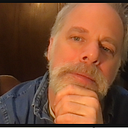We live in the age of Convenience Blaming. When something bad happens we look to isolate the blame in order to push it as far away from ourselves as possible. War? The fault of politicians. Racism? The fault of easily identifiable racists.
Convenience blaming has always been a thing; we project that which we fear or loath about ourself on to others. When we fear commitment, we break up with our partner, telling them that they fear commitment. When we don’t want to listen to what someone has to say, we accuse them of being close-minded.
Convenience blaming lets us off the hook. When something terrible happens, we look for some attribute of the perpetrator that is easy not to associate with ourselves. So, when there’s a publicly visible racist, homophobic or misogynistic attack, we instantly look to see what racial, political or other group affiliation the perpetrator has that is different from our own. Once we identify that safe (distant) affiliation, we can go on to affix blame to other members of that group. That way, we can blame and dehumanize everyone in, say, a different political party than us. We stay clean. We stay free of blame. And social media amplifies this tendency. There is almost a competition online, within your social and political bubbles, to vilify particular bad players and by implication sanctify ourselves, the “good guys.”
Of course, there has to be accountability. When politicians inflame racist passions, they should be held to account. But focusing only on people we already hate and see as “other” weakens any possibility of solving real systemic problems.
Let’s take anti-Asian bias as an example. In the immediate aftermath of a public, anti-Asian racist attack, the internet is full of two competing ideas: On the convenience blaming side, the most reprehensible politicians bear the blame, along with members of their party who haven’t condemned those politicians. On the other side is a similarly avoidant position of down-playing the true nature of the crime, attempting to twist the blame to the other side, or pointing to something else bad that someone politically opposed to the perpetrator has done (“what-aboutism”).
Both sides in these endless social media threads are avoiding the larger truth. The reason that anti-Asian crimes occur is that Western society has perpetuated racist and misogynistic Asian stereotypes for generations. You can see it in countless Hollywood films over the last hundred years. You can hear it in jokes among middle school children and in mock accents among your friends, read it in the school curriculum’s interpretation of history, hear it from late night talk show hosts, from gym teachers, from your neighbor, your parents, and probably, at some point in your life, from you. You can’t exonerate an entire culture by pointing at a few obvious culprits.
This is our cultural heritage. Ours. It’s embedded into the baggage that we carry with us, along with other forms of bias. It’s understandable why you’d want to unload all that onto an easily identifiable bad guy. But in doing that, in essentially wiping the dirt off our hands and onto someone else who is easy to blame, we are avoiding any real solution. Because the solution will not come from Tucker Carlson or Donald Trump being shamed into changing their beliefs or words. The solution will only come from a cultural reckoning. And we don’t live apart from the culture — we are part and parcel of it — it is ours to ignore through convenience blaming or to change.
